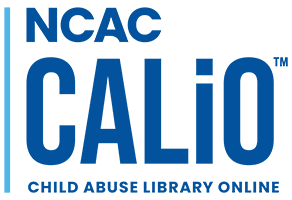Log into CALiO™ or contact the librarians to obtain publications.
Alves, R. T., Nelson-Gardell, D., Tavares, M., & Young, T. L. (2019). Developing a functional code system to analyze forensic interviews with suspected vtims of child sexual abuse. Child and Adolescent Social Work Journal, 36, 305-316. DOI:10.1007/s10560-019-00612-zic
Brubacher, S. P., Powell, M. B., Steele, L. C., & Boud, D. (2022). The use of a guided peer review assessment for investigative interviewers of child witnesses. The Journal of Forensic Practice, 24(1), 1-17. DOI:10.1108/JFP-07-2021-0040
Brubacher, S. P., Shulman, E. P., Bearman, M. J., & Powell, M. B. (2022). Teaching child investigative interviewing skills: Long-term retention requires cumulative training. Psychology, Public Policy, and Law, 28(1), 123-136. DOI:10.1037/law0000332
Danby, M. C., Sharman, S. J., & Guadagno, B. (2022). Testing an evaluation tool to facilitate police officers’ peer review of child interviews. Journal of Police and Criminal Psychology, 37(3), 711-725. DOI:10.1007/s11896-022-09516-8
Everson, M., Snider, S., & Rodrigues, S. (2020). Taking AIM: Advanced interview mapping for child forensic interviewers. APCSAC Advisor, 32(2), 72-91.
Farrugia, L., Oxburgh, G., & Gabbert, F. (2019). Effective evaluation of forensic interviews: The forensic interview trace (FIT). Investigative interviewing: Research and Practice, 10(1), 20-31.
Gonsalvez, C. J., Riebel, T., Nolan, L. J., Pohlman, S., & Bartik, W. (2023). Supervisor versus self‐assessment of trainee competence: Differences across developmental stages and competency domains. Journal of Clinical Psychology, 79(12), 2959-2973. DOI:10.1002/jclp.23590
Hyman Gregory, A., Wolfs, A., & Schreiber Compo, N. (2023). Witness/victim interviewing: A survey of real-world investigators’ training and practices. Psychology, Crime & Law, 29(9), 957-981. DOI:10.1080/1068316X.2022.2043312
Lamb, M. E. (2016). Difficulties translating research on forensic interview practices to practitioners: Finding water, leading horses, but can we get them to drink? American Psychologist, 71(8), 710-718. DOI:10.1037/amp0000039
Waterhouse, G. F., Ridley, A. M., Bull, R., La Rooy, D. J., & Wilcock, R. (2019). Mapping repeated interviews. Journal of Police and Criminal Psychology, 34, 392-409. DOI:10.1007/s11896-018-9288-7
